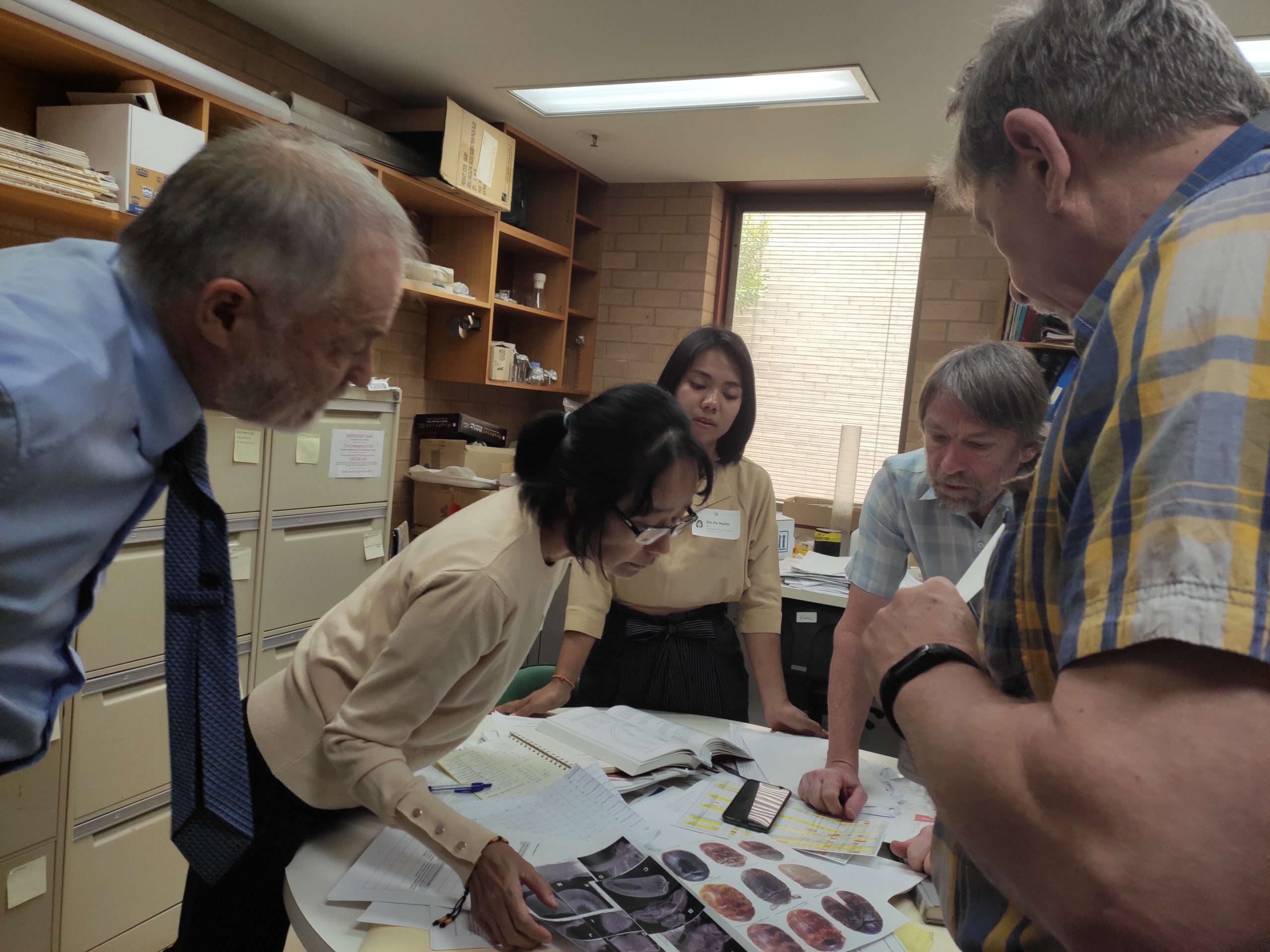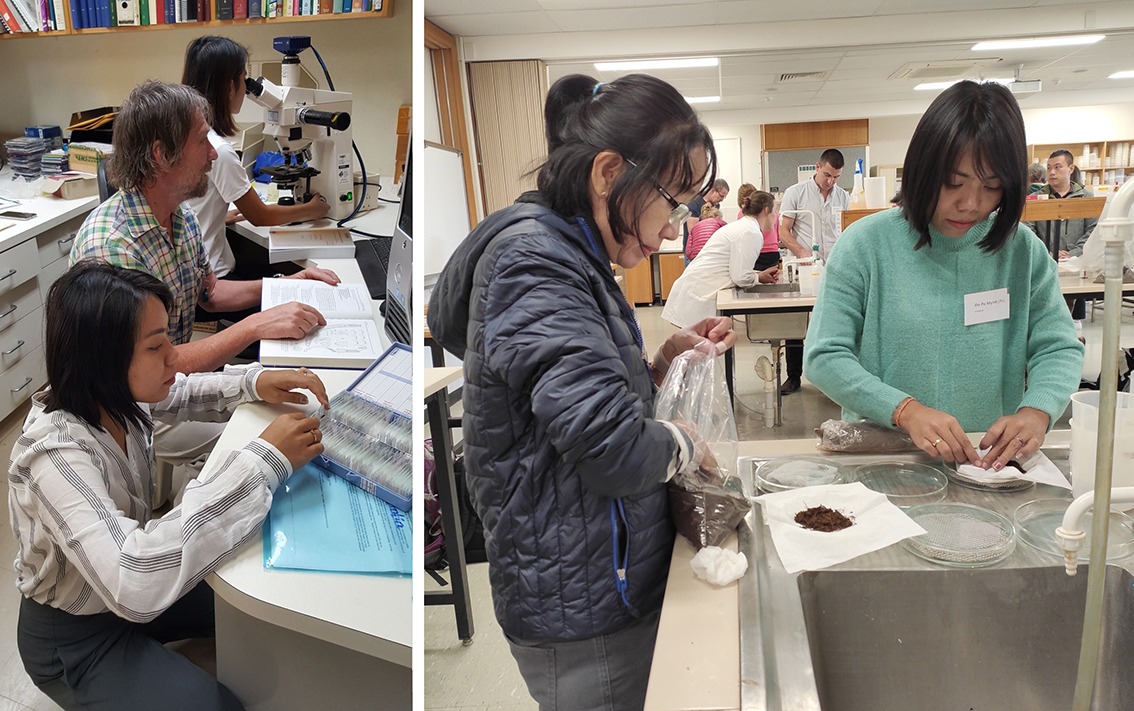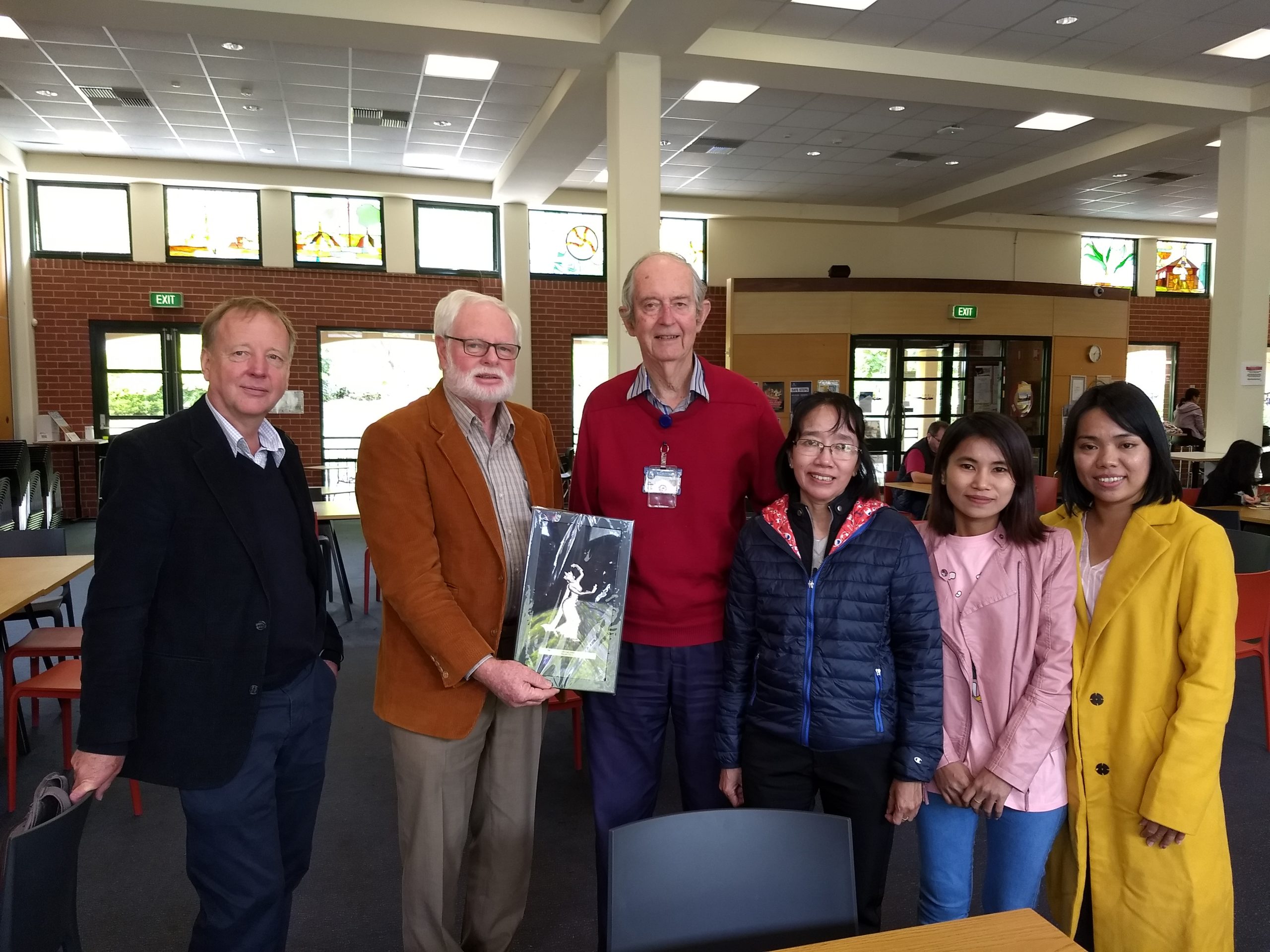

Nematode training in Myanmar
February 18, 2020
Crop losses to nematodes are common throughout the developing countries of SE Asia. Go to almost any vegetable market in the region, look at the roots on one of the many leafy vegetable plants, and you will find many signs of nematode attack. Root-Knot is the most obvious, but there are also many other nematodes causing damage which are often not recognised. Dr Mike Hodda, from Australia’s CSIRO, has been working for the last 10 years to increase awareness of nematodes and train locals to recognise both the symptoms and the species causing the damage.

In December 2019, three staff from the Plant Quarantine Section of the Plant Protection Division of the Myanmar Department of Agriculture travelled to CSIRO Canberra and The University of Adelaide to learn about nematode identification, quarantine, management and research. Dr Mike Hodda’s training of the three staff was funded by The Crawford Fund ACT and SA Committees. This followed some earlier training in Laos by Mike that was supported back in 2016.
Following the training, Dr Hodda reported that two junior officers, Daw Zin Po Myint and Daw Ei Ei Mon, gained valuable experience in nematode identification and took back many images and reference material for pest and quarantine nematodes they had never seen before. Dr Pyone Pyone Kyi, with more experience, learned about communicating knowledge and possibilities for improving nematology in Myanmar.
“All three visitors met many researchers, regulators and managers in government agencies with interests in nematode biosecurity and left with many useful contacts that will help Myanmar improve import quarantine and export certification to facilitate farmers’ incomes and opportunities,” said Dr Hodda.

The three trainees from Myanmar reported “We will use our new skills and knowledge to spread and increase awareness of nematodes, identify significant plant-parasitic nematodes for quarantine, find solutions to nematode problems, decrease crop losses and improve agricultural research and development. Because the Plant Protection Division in Myanmar operates right across the country, we expect the benefits will flow everywhere for food production, biosecurity, food security, trade, household incomes, and resource management.”
“The outcomes from this training will benefit Australia in having better knowledge of the nematode pests in our region. We will also have greater confidence in the abilities of countries like Myanmar to certify their produce as being nematode free. Controlling nematodes more effectively on farms will decrease the likelihood of nematodes entering Australia either on produce or as contaminants, as well as improving food security and farm incomes, with all the benefits they bring,” Dr Hodda concluded.





